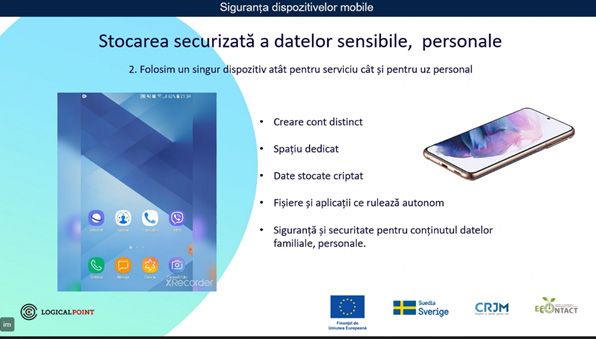Правозащитники Молдовы узнали, как укрепить свою цифровую безопасность при поддержке ЕС

Digital security is as important as physical security. Personal data, banking information or personal information such as family photos or emails can be a tool for blackmailing, if they fall into the wrong hands. Among those most targeted by these threats are human rights defenders
That is why on 6 April 33 Moldovan Human Rights Defenders, representing civil society, journalists and lawyers, in a three-hour training organised by the Legal Resources Centre, learned the basic principles of for a strong digital security as well as general rules of online conduct to guard themselves as best as possible against online threats such as fake links, which appear to come from official institutions like banks or URGENT calls asking for money to be transferred to help loved ones in need.
Among the most important principles taught were, „if it looks suspicious, then it probably is”, „a strong password is one that is easy to remember but, impossible for hackers to guess” and „two-step authentication is not a fad, it’s a necessity”.
A trick that participants were delighted to learn was the completely free method of checking if their personal emails, or any email, have been leaked, using the haveibeenpwned.com website.
Some of the participants admitted to using the same password for multiple accounts, a serious threat to their digital security, and said they had started changing their passwords to the latest standards, minimum 15 characters, upper- and lower-case letters, numbers and symbols, even during the training.
A few of them have also gone ahead and installed a password manager for a more rigorous and secure future digital conduct for themselves and their work.
The IT security for Human Rights Defenders training was organised within the project „Shields for human rights defenders – Supporting Human Rights Defenders in the Republic of Moldova”, implemented by the Legal Resources Centre from Moldova in partnership with EcoContact Association and the International Commission of Jurists — European Institutions, with the financial support of the European Union.